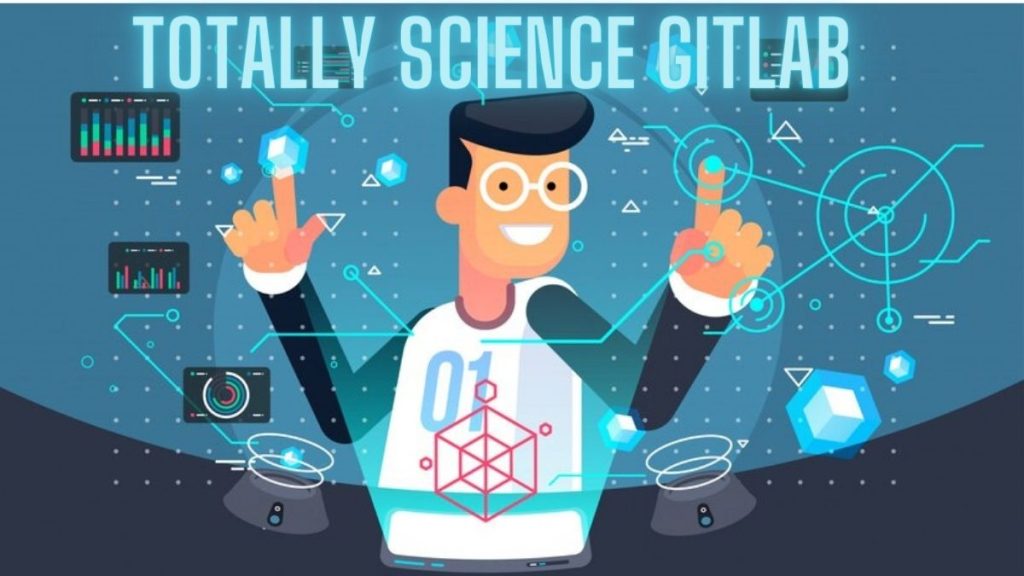GitLab is an example of a ground-breaking platform made possible by the convergence of science and software development in today’s rapidly developing technological landscape. This groundbreaking resource has expanded far beyond its software-centric beginnings to become an indelible asset to the scientific community. In this piece, we’ll delve into the world of “totally science GitLab,” investigating how it has changed the face of scientific collaboration, version control, and new discoveries.
The journey that science and technology have begun is fascinating, marked by relentless exploration and new developments. It’s no surprise that GitLab, a platform well-known for its role in version control, has found a home in the world of scientific research and development. GitLab has become an indispensable tool for scientific collaboration because of its user-friendly interface, which is tailored to the specific needs of researchers.
Introduction: The Confluence of Totally Science GitLab
Even though it was thorough, the traditional scientific method often lacked the efficiency necessary in today’s fast-paced research environment. Then there’s GitLab, a platform with a wide range of tools that meet the varied requirements of contemporary science. GitLab’s central features—its ability to facilitate teamwork, version control, and seamless integration—have made it an indispensable tool for scientists and programmers.
Streamlining Collaboration through Version Control
The foundation of any software project is its history, which is why version control is so important. Similar utility exists in the realm of scientific inquiry, where repeated trials of experiments, analyses, and methods are essential. GitLab’s version control features allow researchers to collaborate on projects, allowing them to safely merge contributions without compromising the project’s original state.
Enabling Transparent Documentation and ReproducibilityThe scientific community places a premium on openness and reproducibility. By design, Totally science gitlab facilitates open documentation by enabling scientists to keep a detailed history of all revisions, fixes, and contributions. This helps establish trust in studies and makes it simpler to reproduce experiments, both of which are essential to the scientific method.
Issue Tracking: Enhancing Efficiency in Problem Solving
Problem-solving and troubleshooting are common research activities. The problem-solving process is more organised with GitLab’s issue tracker. In order to facilitate a more streamlined process towards solutions and breakthroughs, researchers can create issues, outline concerns, assign tasks, and monitor progress.
Creating and Managing Issues
The problems may originate in the form of coding errors or experimental snags. Problems encountered by researchers can be opened, sorted, and then assigned to members of the team. This method of working together promotes group creativity and speeds up the rate at which problems can be solved.
Monitoring Progress and Milestones
GitLab’s milestones and issue tracker work together without any hiccups. This convergence improves the efficiency and effectiveness of project management by helping researchers better coordinate their efforts with overarching goals.
Embracing Continuous Integration and Automation
Science is characterised by iterative procedures and discoveries based on empirical evidence. These ideas are bolstered by GitLab’s support for continuous integration (CI) and automation. Each new commit is guaranteed to be in compliance with the project’s standards by automating the testing, validation, and integration processes.
Harnessing the Power of Merge Requests
GitLab’s solution to teamwork is the merge request. They are the entry point for incorporating alterations, additions, and improvements into scientific projects. This function promotes thoroughness when integrating code, data, or documentation, which is essential for peer review.
Facilitating Peer Reviews
The reliability of science depends on peer reviews. With GitLab’s merge requests, scientists have a systematised way to evaluate each other’s findings. This positive feedback loop encourages growth and sharing of information.
Maintaining Code and Data Integrity
Requests to merge work together improve communication and help keep the project intact. Totally science gitlabensures that no blunders creep into the final product by requiring reviews and tests before code is integrated.
Building a Unified Knowledge Base
In the realm of science, centralised knowledge storage is essential. GitLab’s wiki and snippets features help meet this need by making it easier to create, store, and share useful knowledge, code snippets, and processes.
Wiki Creation and Management
The wiki is a storehouse for information. To make sure that all of the team’s most pertinent data is easily accessible, researchers can work together to create and improve documentation.
Sharing Insights through Snippets
A snippet is a small chunk of code, data, or text that can be easily shared and reused. This feature promotes a culture of open collaboration and quick information sharing.
Security and Access Control in Scientific Collaboration
Research frequently deals with confidential information and original ideas. Safeguarding sensitive data while facilitating smooth collaboration, GitLab’s security features include access control and authentication.
Extending Totally Science Gitlab for Data Science and Research
The convergence of scientific and technological knowledge has given rise to the age of evidence-based conclusions. GitLab’s flexibility extends to the realm of data science, where it can be used for a variety of purposes including storing, analysing, and visualising data.
Integrating Third-Party Tools for Enhanced Functionality
GitLab’s extensibility through plugins increases the platform’s usefulness in the lab. Flexibility and power are amplified through the use of integrated tools like Jupyter Notebooks and CI/CD pipelines.Connecting Jupyter NotebooksJupyter Notebooks, the de facto standard for interactive data analysis, can be used in tandem with GitLab without any hitches. This complementarity improves the efficacy of team-based analysis, visualisation, and programming.
Leveraging CI/CD Pipelines for Data Analysis
Continuous integration and deployment pipelines extend beyond code. For data analysis, these pipelines automate preprocessing, analysis, and visualization tasks, streamlining the research workflow.
Future Prospects: Nurturing Innovation and Discovery
The significance of totally science gitlab in modern scientific teamwork is evolving rapidly. The platform’s potential to promote innovation and discovery increases exponentially as technology and research methodologies develop.
Conclusion: Pioneering Collaborative Science through GitLab
Collaboration and innovation are the bedrock of progress in the dynamic field of science. GitLab, a software developer’s tool, has found a natural home in the realm of scientific research. GitLab allows scientists to explore uncharted territory by facilitating version control, collaboration, and automation.
FAQs (Frequently Asked Questions)
Is GitLab suitable for all fields of science?
GitLab’s versatile features cater to a wide array of scientific disciplines, facilitating collaboration and documentation across various fields.
Can GitLab be used for individual research projects?
Absolutely! GitLab’s features can be scaled down for individual researchers, providing version control, documentation, and collaboration tools.
How does GitLab ensure data security in collaborative projects?
GitLab implements robust security measures, including access controls and authentication, to safeguard data while enabling collaborative efforts.
What is the learning curve for adopting GitLab in scientific research?
While there might be a learning curve, GitLab offers extensive documentation and resources to ease the transition and maximize its benefits.
Are private repositories available on GitLab for sensitive research projects?
Yes, GitLab provides the option for private repositories, ensuring confidentiality for research endeavors.







